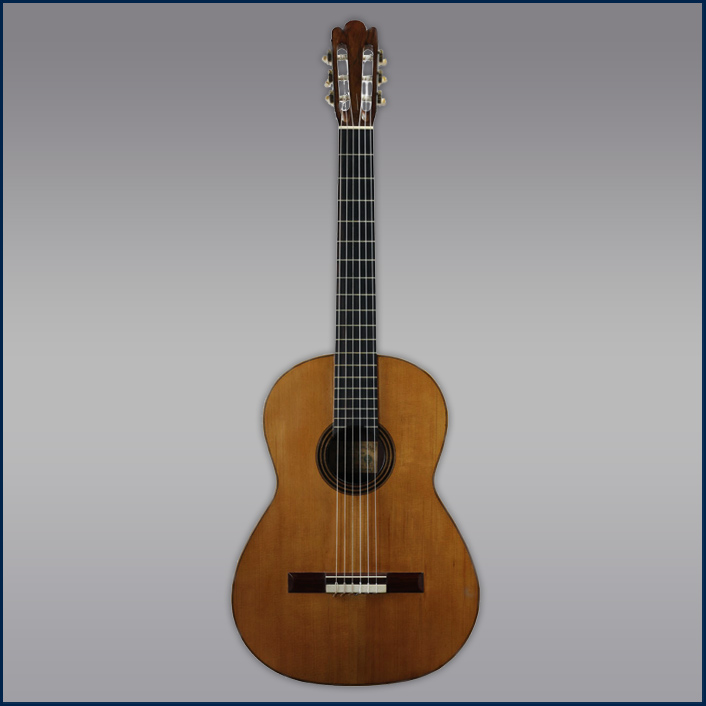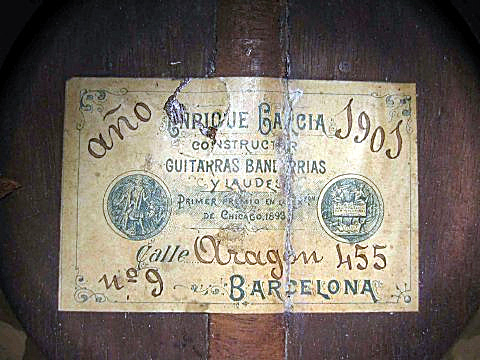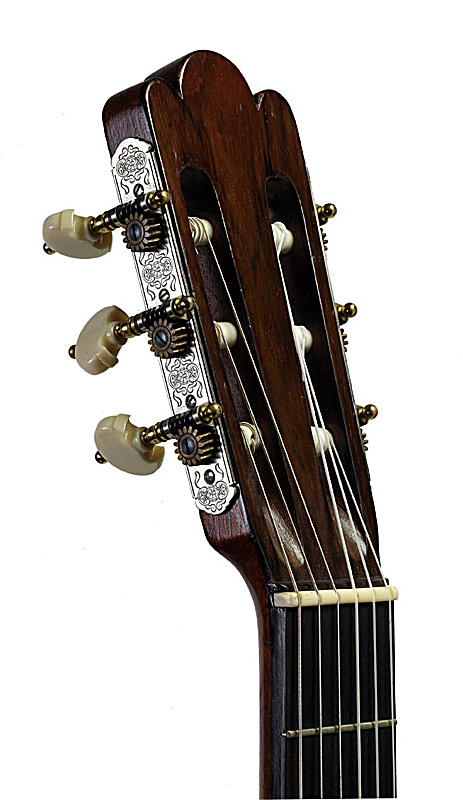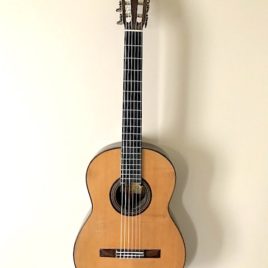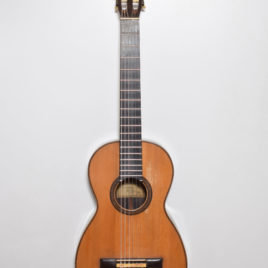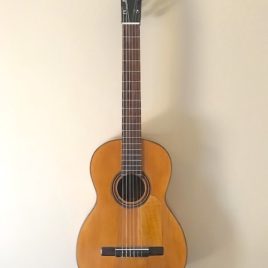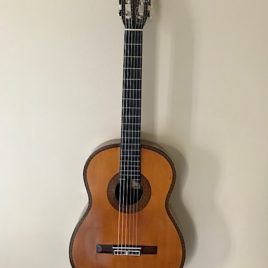Description
This guitar was made by Enrique Garcia in 1901.
Enrique Garcia (1868-1922) was the son of a Madrid guitar maker, Juan Garcia. But Enrique’s apprenticeship was in the José Ramirez shop working under both José and Manuel Ramirez. Garcia continued to work in Madrid for many years and in 1893 his guitars won first prize at the Chicago World Fair. Garcia was obviously very proud of this and he noted the achievement in pictorial form on his guitar labels.
Garcia moved to Barcelona in 1895 and opened up shop. He is considered to be the founder of the “Barcelona school,” or “Catalan” style of guitar making–reflected in the use of an 8th fan brace on the treble side of his soundboards to increase stiffness. This and other constructional details influenced great Barcelona luthiers that followed, among them Francisco Simplicio and Ignacio Fleta.
Garcia was arguably the most sought-after and famous maker at the turn of the century (1900). His reputation very early on was truly international, largely thanks to Domingo Prat and Francisco Tarrega, who both played his Torres-style guitars. By 1912 he was exporting many of his instruments primarily to South America where a thriving and very important guitar scene based mainly in Buenos Aires, Argentina was forming.
Agustín Pío Barrios (also known as Agustín Barrios Mangoré and Nitsuga—Agustin spelled backwards—Mangoré; May 5, 1885 – August 7, 1944) was a Paraguayan virtuoso classical guitarist and composer, largely regarded as one of the greatest performers and most prolific composers for the guitar.is documented by photograph to have played the instruments of Spanish makers José Ramírez I, Enrique García, Francisco Simplicio, Domingo Esteso, Enrique Sanfeliu and Ricardo Sanchis Nacher, Brazilian maker Di Giorgio, and in print by Uruguayan maker Rodolfo Camacho.
This rare instrument is one of only 272 known to have been made by Enrique Garcia, who began his career in the shop of Manuel Ramirez, later moving to Barcelon.
This very well-preserved instrument is an example of Garcia building in his mature and more sober style before the more elaborately ornamented guitars that came later under the influence of his student, Francisco Simplicio. The tone is robust and lively, with great charm and personality.

